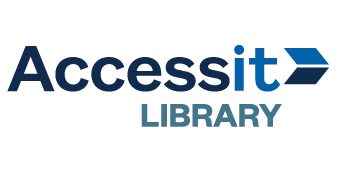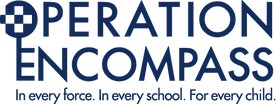Computing and Business
Welcome to our Computing page
You will find lots of information below about the subject and how the department operates.
If you have any queries regarding computing please do not hesitate to get in touch with me.
Heather Herring
Head of Computing

Introduction
Our aim at St John Henry Newman School is to equip each and every pupil with the knowledge and skills in Computer Science, Information Technology and Digital Literacy, that will allow them to live and work in a society that is becoming increasingly reliant on technology. Pupils receive discrete IT lessons in Key Stage 3, that develop and apply their skills to a range of situations, in addition to cross curricular opportunities in other subjects. We are extremely well equipped, with two specialist IT suites and additional computers and laptops available throughout the school. ICT facilities are available at lunchtime to allow pupils to complete their homework. Additional after school sessions are offered throughout the year for GCSE revision and coursework catch-up.
We recognise the value of this subject and within it the use of the internet as an extremely powerful tool but equally we recognise that it can be an extremely dangerous place. Therefore, e-safety is at the forefront of all our teaching to ensure that each pupil is aware of their rights and responsibilities online, whilst also being able to evaluate the social impact of technology. All online content is monitored to ensure the safety of our pupils. Through this system we can block access to most inappropriate websites and record any suspicious activity. Pupils’ emails are stored and monitored regularly and there is a thorough system in place to ensure everyone is kept safe.
Our Curriculum
Key Stage 3
Students arrive at St John Henry Newman Catholic School with a wide range of experience, confidence and capabilities. Our introduction to key stage 3 builds on the knowledge that pupils have gained during their primary education, ensuring they are equipped with digital literacy skills that will prepare them for a society that has become reliant on technology. Our programme of study combines this with information technology and computer science, allowing pupils to learn both the scientific aspects of computing along with more creative tasks, providing variety and an opportunity for pupils to see where their strengths lie and an ability to choose appropriate applications to complete a given task. Students receive a weekly one-hour lesson in years 7, 8 and 9, where topics include:
- Digital Literacy and online safety
- Computer Systems and Networks
- Binary and Data representation
- Computational Thinking and Programming Fundamentals
- Creative and digital media.
Key Stage 4
In our key stage 4 curriculum we build on the foundation provided in key stage 3, pupils will have the option to complete a relevant qualification, based on either GCSE Computer Science or Creative iMedia. As pupils prepare for their future career they need to develop their ICT skills to be successful. Most career options will involve some use of ICT and it is vital that pupils have an ICT qualification in order to gain the best possible advantage in the job market.
Dependent on interest and ability, some of our pupils will be guided towards the GCSE in Computer Science, following the OCR specification. This comprises two examination papers and experience of practical programming, all of which allow pupils to further their understanding of how computers work and the techniques used to write effective computer programs. This course is graded using the 9-1 system.
As an alternative to this course, we offer the Cambridge Nationals, Creative iMedia Level 1/2 Certificate, which studies the planning of traditional and emerging media products as well as developing practical skills where pupils will plan their own media products. This comprises three units, one of which is externally assessed and will focus on Creative iMedia in the media industry. Students will then apply their pre-production skills in the remaining practical units, which are internally marked and externally moderated. These allow the pupils to show their creativity and will focus on 'Visual Identity and Digital Graphics' and 'Characters and Comics'. The course is graded at Distinction*, Distinction, Merit or Pass at level two. Pupils who fail to meet the level 2 requirements can be awarded a level one grade.
Links
GCSE Computer Science (9 – 1) OCR new specification - https://www.ocr.org.uk/qualifications/gcse/computer-science-j277-from-2020/
Cambridge Nationals Level ½ in Creative iMedia - https://www.ocr.org.uk/qualifications/cambridge-nationals/creative-imedia-level-1-2-j834/
Key Stage 5 Computing
Our sixth form students can choose to study the AAQ BTEC National Extended Certificate in Information Technology. BTEC courses prepares students well for further study or employment with a vocational approach. Students learn to balance portfolio units with exam-based work, requiring them to manage their time effectively. Students follow a two-year course that will see them completing four units of work, which includes the following:
Year one:
Unit 1 – Information Technology Systems – this will be externally assessed through an exam.
Unit 3 - Website Development – internally assessed through a set brief.
Year two:
Unit 2 – Cyber Security and Incident Management – this will be externally assessed through an exam.
Unit 4 – Relational Databases Development – internally assessed through a set brief.
This is an A Level equivalent assessed as Pass, Merit, Distinction or Distinction*.
Additional information – BTEC Level 3 Information technology
Also available for study in our sixth form is BTEC National Extended Certificate in Business. This is a great choice for students who want to gain practical, real-world skills alongside academic knowledge. The course is designed to help you understand how businesses work, from marketing and finance to recruitment and selection. It's ideal if you enjoy problem-solving, working in teams, and applying what you learn to real-life situations. BTEC Business is also widely recognised by universities and employers, making it a strong pathway whether you want to go into higher education, an apprenticeship, or straight into a business-related career. If you're interested in how companies succeed, how social media impacts business, or how to manage money and people, this course gives you a head start in the world of work. Students follow a two-year course that will see them completing four units of work, which includes the following:
Year one:
Unit 1 – Exploring Business – this will be internally assessed
Unit 2 – Develop a Marketing Campaign – this is externally assessed
Year two:
Unit 3 – Personal and Business Finance – this is externally assessed
Unit 8 – Recruitment and Selection - this is internally assessed
The table below shows how BTEC grades equate to UCAS grades and Tariffs.
BTEC Grade | UCAS Tariff | UCAS equivalence to A Level |
Distinction* | 56 | A* |
Distinction | 48 | A |
Merit | 32 | C |
Pass | 16 | E |
Homework
ICT Homework is set for pupils in years 9 to 11 and is based on either classroom tasks or a revision task for a previous topic. If a pupil needs help with a homework task, they should contact their teacher as soon as possible.
Scratch
As part of the Key Stage 3 programme of study pupils design, use and evaluate computational abstractions that model the state and behaviour of real-world problems and physical systems. We introduce this topic using a free online app called Scratch. Why not get practising by visiting the Scratch website today? See the link below
In Year 8 we move onto written programming language such as Python. This is also free to download here, alternatively visit codewith.mu for a pupil friendly version.












